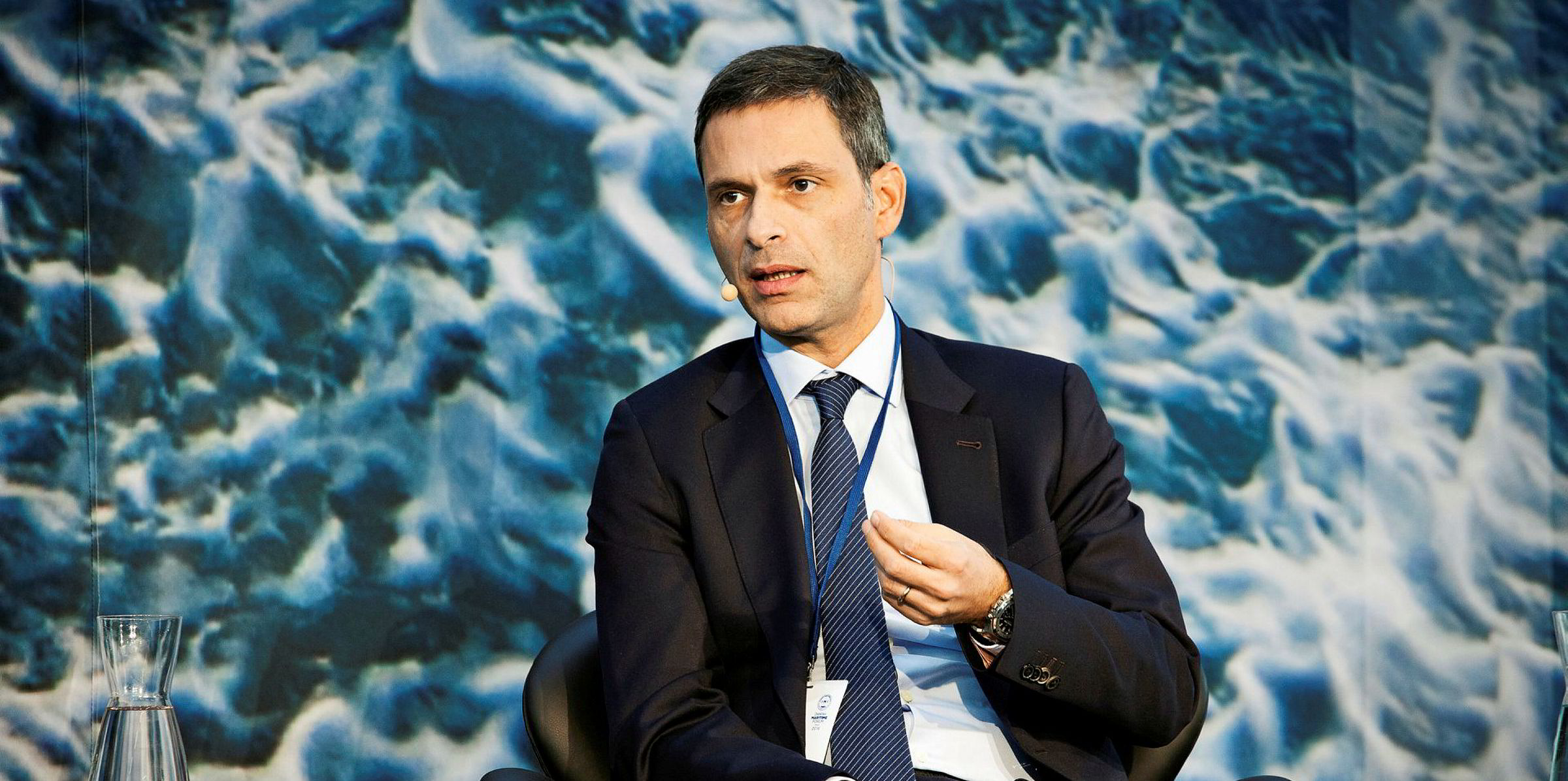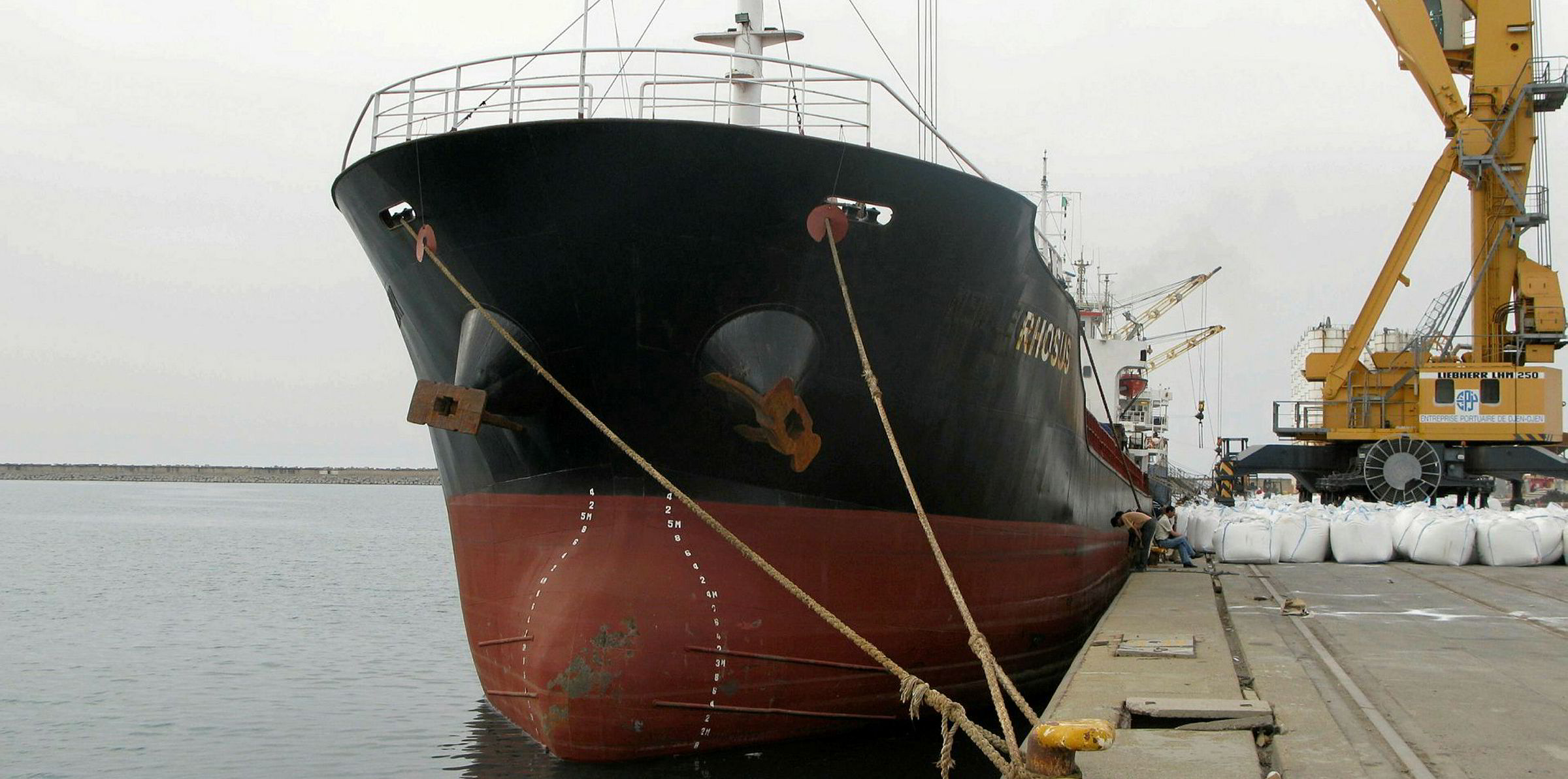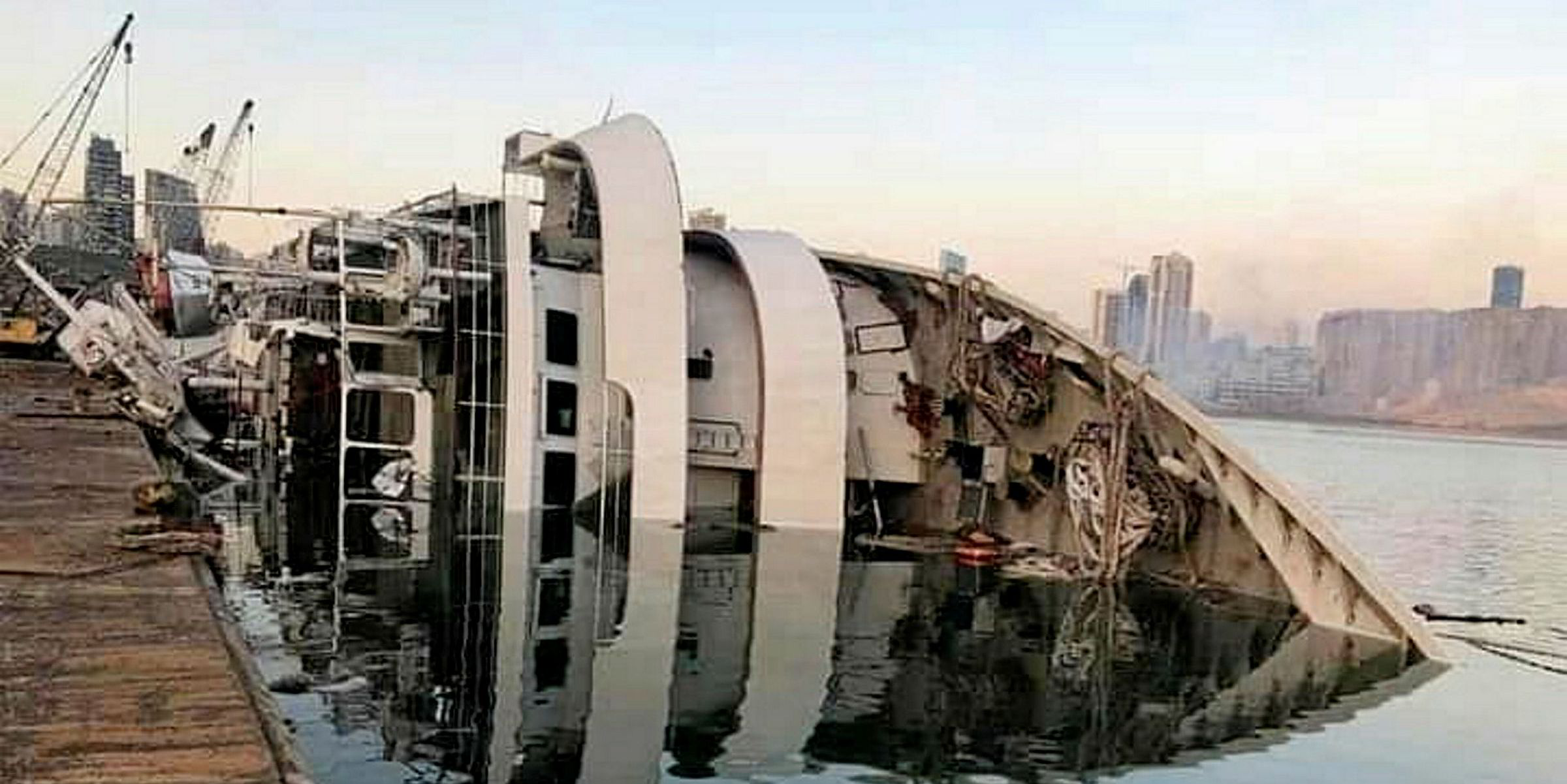Liner operators are scrambling to manage the lethal and devastating aftermath of the Beirut blast.
France's CMA CGM has confirmed the death of one of its employees in the explosion that has so far cost more than 130 lives and injured thousands.
The tragic events in the port of Beirut prompted chief executive Rodolphe Saade to fly to the country of his birth on Thursday last week in show of solidarity with its Lebanese staff.
But the CMA CGM headquarters, located a few hundred metres from the site of the explosion, were severely damaged by the explosion.
The French line employed 261 staff in Lebanon, one of whom has died and two have been seriously injured, the company said.
Many of its workers suffered minor injuries.
Meanwhile, Germany's Hapag-Lloyd said its offices in Lebanon had been "completely destroyed" by the Beirut blast.
While the offices of Hapag-Lloyd were "completely destroyed, luckily all Hapag-Lloyd staff and representatives are safe and sound", the German liner operator said.
But laden and empty containers had "most probably have been affected by the blast", it added.
Danish operator Maersk confirmed that its office in Lebanon has been "seriously damaged". Three of its staff were slightly injured and have been taken to hospital.
"Their condition is good, and we are closely monitoring their recovery," the company said.
Swiss liner giant Mediterranean Shipping Co (MSC) said its staff had been able to work remotely from home.
Contingency plans
Hapag-Lloyd, Maersk and MSC had no vessels in the area at the time of the explosion.
The only large containership in the port was the 11,388-teu CMA CGM Lyra (built 2011), which was located 1.5 km (0.9 miles) from the site of the explosion. None of its crew members were injured and the vessel was not damaged, operator CMA CGM said.
However, every liner operator has been forced to implement contingency measures.
Hapag-Lloyd said it had cancelled the Beirut call of the 2,782-teu Fleur N (built 2012) and 6,350-teu APL Norway (built 2007).
These have been diverted to discharge at Damietta in Egypt and Tripoli, the country's second port located some 70 km to the north.
Hapag-Lloyd added it is temporarily not accepting any cargo to and from Beirut.
Maersk had containers in the port and was assessing potential damage. The port is likely to remain closed for the next few weeks, during which time the Danish line would also operate vessels from the port of Tripoli.
MSC has omitted calls to the Beirut Container Terminal while damage assessments are made.
The company has arranged "contingency arrangements" for cargo due to be loaded/discharged at alternative ports. These include the Italian port of Gioia Tauro, Tekirdag and Mersin in Turkey, and Piraeus in Greece.







